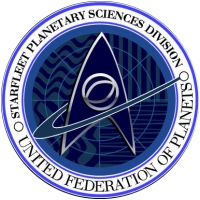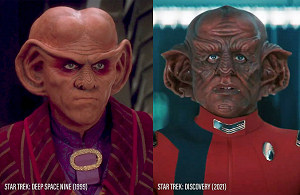01 - New Player Introduction
Created by Commander Morgan Tarin on 05 Aug 2023 @ 11:15am
Table of Contents:
1.1 About Us
Star Trek: Galileo, colloquially known as USS Galileo or Galileo, is an international online role-playing community founded in 2012. Its ongoing mission is to nurture the hobby of creative sci-fi writing. The community focuses on diversity, inclusiveness, and exploration of the Star Trek franchise as originally envisioned by creator Gene Roddenberry.
We are a fan fiction gaming group emphasizing scientific research and discovery. We strive to portray Star Trek's protagonists in an authentic three-dimensional manner. Our RPG uses a type of online gaming called 'simming' which is a form of collaborative written role-play where multiple players write together to publish unique scenes and episodes.
Our community welcomes players from all nationalities, genders, races and creeds. It is united by its passion for Star Trek and the exploration of the cosmos. The written adventures focus heavily on science, adventure and character development, and do not promote a militaristic interpretation of Starfleet or a conflict-laden political landscape. Our game world is defined by alpha canon and does not recognize any licensed post-ENT series, books or films as official Star Trek lore.
1.2 Game History
The name and likeness of the Galileo game existed for approximately six years years prior to its current iteration. During this period, it was managed by several different game masters, each with their own unique groups of players. USS Galileo, in its present form, was established in early 2012 as a subsidiary role-play game within a larger parent organization named Obsidian Fleet. The game spent several years within Obsidian Fleet's Task Force 72 sub-group before transferring to a different sub-group, Task Force 21.
In late 2016, USS Galileo terminated its affiliation with Obsidian Fleet and joined a different parent organization named Theta Fleet. Within this new gaming group, Galileo became a member of its Area 51 sub-group. In mid 2019, Galileo departed Theta Fleet to become a non-affiliated independent ("indie") game.
USS Galileo presently remains an independent game with no affiliations or obligations to any larger parent group or organization. Our game history is rich and full of fond memories with our past associates and we owe them much gratitude for their contributions to our game over the years.
ACCOLADES
USS Galileo is the recipient of many role-play awards dating back to 2012. These include: multiple Unit of Merit and Unit of Distinction awards (2012-2019); multiple CO of the Year awards (2012, '14, '17); XO of the Year (2013); Character of the Year (2015); Outstanding Creativity (2015); Simmingprize's Nobel Prize (2015); Writer of the Year (2017); Player of the Year (2018); and Sim of the Year (2018).
1.3 Planetary Science Specialty

There are many different Star Trek role-play groups within our hobby and each presents their own unique interpretation and 'spin' of the fandom. Some games gravitate toward a conflict/combat focus while others prefer a more colony- or station-based political experience. Some games strive for a multi-themed approach while others attempt to narrow their themes into a specialized role-play experience.
USS Galileo was founded as a planetary science specialty game and remains so to this day. Our group's in-character starship is a Nova-class survey vessel designed to investigate planetary and spacial phenomena. Our gameplay follows this unique specialty to stay true to our ship and its capabilities.
The most common writing themes on Galileo include action-adventure, exploration, horror, and character development. We occasionally write conflict and combat scenes within the larger context of a story, but they are not the focus of our writing let alone an entire mission or story arc. Our vision of the Star Trek future is not a dystopian one, but rather a continuation of the utopian scientific exploration and discovery themes as originally established by Gene Roddenberry.
1.4 Canon Guide

What is 'canon'? How do you define it? Who defines it? These questions permeate every fandom and often lead to intense debates between enthusiasts, players, writers, and even original source creators. Canon is defined as the official authoritative source of a fandom's universe. It dictates the behavior and actions of characters, determines the authenticity of events, technology and historical continuity, and connects the fictional world together in a way that makes it realistic and believable. For those who role-play within the Star Trek fandom, canon serves as a rule book of what is and is not applicable to the world in which our stories take place.
Star Trek is widely considered the mother of all fandoms. It is a show which has consistently broadcast on public television over the course of 50 years. Between the time period of Star Trek: The Original Series' debut in 1966 and Star Trek: Enterprise's finale in 2005, 725 episodes of Star Trek were released across six different series and were complimented by 10 feature films. Over 100 Star Trek tabletop and video games accompanied the various series. The number of written works - including technical manuals, maps, and spinoff novels - written during this period far surpasses the totality of the visual medium. There is no other fandom in existence which contains as much original and fan content as the Star Trek franchise. In addition, since 2009 there have been an additional three feature films and six new series, adding another 100+ episodes of content.
The greatest challenge for any Star Trek author or game community is to sift through the plethora of available content to determine what is and is not acceptable source material. In other words, what is canon versus non-canon. Fans of a show cannot be forced to simply accept content as canon if they find fault with it. Despite popular perception, fans have full authority to accept or reject an interpretation of their fandom which they feel does not properly represent the source material. Thus, the term 'canon' is subjective and not objective. To repeat: canon cannot be forced on a fan of the franchise. Only when it meets suitable subjective criteria can it then be accepted by those who have been engaging with the Star Trek universe since its inception.
ALPHA CANON
Alpha canon is a term used on USS Galileo to differentiate primary source material from secondary source material. Alpha canon, or primary source material, is defined as any Star Trek content directly created by its original studio or studio entities. In other words, the owners of the IP. In this case, that means any TV show or feature film created by Paramount, CBS, or any of its legacy entities is considered alpha canon.
Alpha canon feature films and TV series include:
- Star Trek: The Original Series (1966-69)
- Star Trek: The Animated Series (1973-74)
- Star Trek: The Next Generation (1987-94)
- Star Trek: Deep Space Nine (1993-98)
- Star Trek: Voyager (1995-2001)
- Star Trek: Enterprise (2001-05)
- Star Trek: The Motion Picture (1979)
- Star Trek II: The Wrath of Khan (1982)
- Star Trek III: The Search for Spock (1984)
- Star Trek IV: The Voyage Home (1986)
- Star Trek V: The Final Frontier (1989)
- Star Trek VI: The Undiscovered Country (1991)
- Star Trek: Generations (1994)
- Star Trek: First Contact (1996)
- Star Trek: Insurrection (1998)
- Star Trek: Nemesis (2002)
BETA CANON
Whereas alpha canon refers to primary source material created by the original IP owner (Paramount/CBS entities), beta canon refers to secondary source material which the IP holder licenses out to another entity to create. Because the IP holder is no longer directly involved in the design and production of secondary source material, it therefore becomes an interpretation of the primary source. In this case, when we refer to Paramount/CBS licensing out the Star Trek IP, we are specifying the Bad Robot Productions and Secret Hideout film and production companies. Any content created by either of these companies is an interpretation of Star Trek and is therefore designated as beta canon.
Beta canon feature films and web/TV series include:
- Star Trek: Discovery (2017-24)
- Star Trek: Short Treks (2018-20)
- Star Trek: Picard (2020-23)
- Star Trek: Lower Decks (2020-24)
- Star Trek: Prodigy (2021-23)
- Star Trek: Strange New Worlds (2022-pres)
- Star Trek (2009)
- Star Trek Into Darkness (2013)
- Star Trek Beyond (2016)
GAME CANON
USS Galileo is an alpha canon game. We do not incorporate any beta canon material (including other licensed books/comics/games) into our game world and writing. This includes past and future beta canon events, species, characters, ships and technology. We enjoy consuming beta canon content but do not feel it aligns with our vision for a utopian future showcasing evolved human beings.
STAR TREK (2009) DESTRUCTION OF ROMULUS
While Galileo is an alpha canon RPG, our original parent organization forced our game to incorporate the 2009 Star Trek film's destruction of Romulus into our game world as 'official fleet lore'. Despite later becoming an independent game, retconning this beta canon content out of our game's history is unfeasible. Therefore, the planets Romulus and Remus remain destroyed within our game world.
Categories: Gameplay Manual

